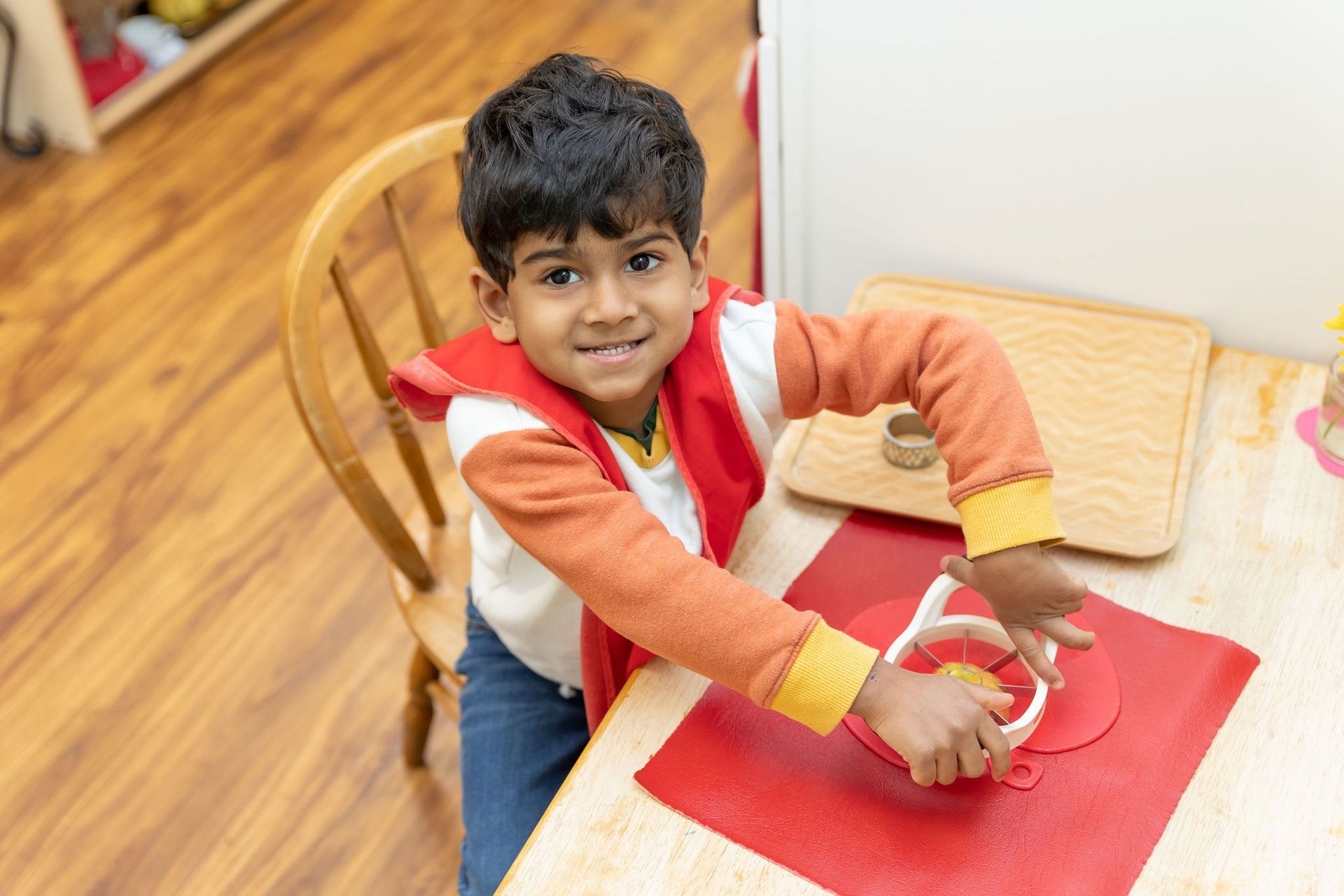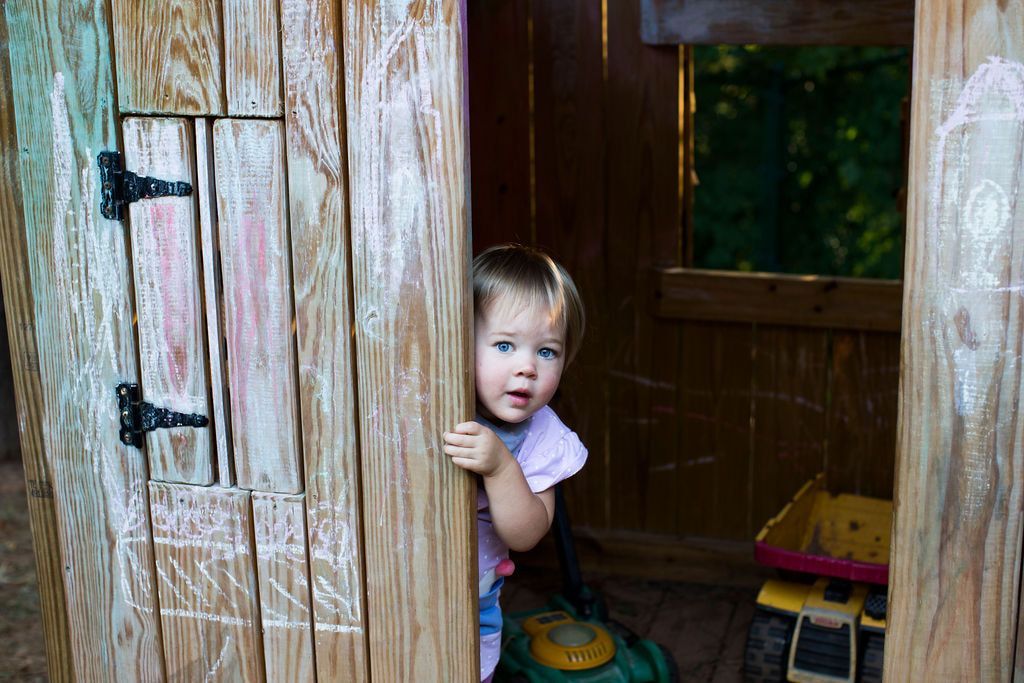
“A child’s work is based on doing things for their own sake. There is an end towards which his work is taking him: through his work, he is building the man he will become. But the child doesn’t know this; he only knows that he takes delight in doing certain things. This is his work”
-Dr. Maria Montessori

You may have heard children who attend a Montessori school talk about their “work”. But what is the work of a child? While work may seem strange for small children to discuss, a child’s concept of work is very different from our concept of work as adults. The Montessori idea of work extends far beyond basic chores and tasks. Work, for the child, includes all of the experiences, play, exploration, and learning that contribute to their holistic development.
In the Montessori classroom, children are presented with materials to guide their purposeful, self-directed learning. These range from practical life materials, which help the children learn skills in daily self-care, courtesy and manners, controlling their movements, and caring for their environment. Children work diligently and happily to arrange flowers, wash windows, slice fruit, polish silverware, set the table, and join together as a community to learn manners and courtesy toward each other. Each task offers a specific competency that children can master as they develop. Often, they will take full responsibility for pets and plants in the classroom, working together to keep them happy and healthy.
Beyond mastering the actual tasks, children also learn important cognitive skills such as self-regulation, problem-solving, decision-making, resilience, and autonomy. With the opportunity to choose and execute their tasks in the classroom, children are purposefully engaged in work that matters to them. They choose their work based on their areas of interest and developmental abilities and needs. It is incredible to watch a small child independently choose their work and execute it confidently. Children are capable of so much more than we often give them credit for, and the Montessori method affirms children’s intrinsic ability to be active participants in their development.
Another important aspect of autonomous Montessori work is fostering a lifelong love of learning. Children choose their own activities, and find the work fulfilling, exciting, and joy-filled. Their curiosity and wonder when approaching each task instill a love of working hard toward a goal and discovering new things. They put effort into mastering their tasks, approaching the challenge with enthusiasm and deriving satisfaction when they ultimately succeed. If the task proves too challenging, children can turn to the teacher to guide them or ask an older child to help them with their work. Working together is another important way that children build community and learn to rely on each other.
Next time you hear a Montessori-educated child talk about “their work”, listen for ways their daily tasks at school move them each day toward mastering their development.


